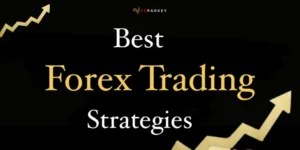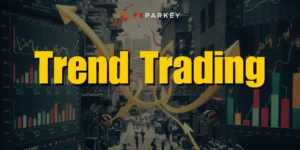Understanding derivatives is essential for successful forex trading. In this section, we will explore what derivatives are and the importance they hold in forex trading.
What are Derivatives?
![Derivatives in Forex Trading 📖 Forex Glossary [2025 Edition] 1 Derivatives](https://fxparkey.com/wp-content/uploads/2024/04/Derivatives.webp)
Derivatives are financial instruments that derive their value from an underlying asset. The value of derivatives is based on the fluctuations in the price of the underlying asset. These assets can include commodities, currencies, stocks, bonds, and more.
Derivatives serve as contracts between two parties, where they agree to buy or sell the underlying asset at a predetermined price and date in the future. The value of derivatives is derived from the changes in the price of the underlying asset. This allows traders to speculate on the price movements of various financial instruments without physically owning them.
Importance of Derivatives in Forex Trading
![Derivatives in Forex Trading 📖 Forex Glossary [2025 Edition] 2 Importance of Derivatives in Forex Trading](https://fxparkey.com/wp-content/uploads/2024/04/Importance-of-Derivatives-in-Forex-Trading.webp)
Derivatives play a crucial role in forex trading for several reasons. Firstly, they provide traders with the opportunity to hedge against currency exchange rate risks. By using derivatives such as forward contracts or options contracts, traders can lock in exchange rates for future transactions, protecting themselves from potential losses due to currency fluctuations.
Secondly, derivatives allow forex traders to speculate on the price movements of currency pairs. For example, using futures contracts, traders can take positions on the future value of a specific currency pair without having to own the underlying currency. This enables traders to profit from both rising and falling markets.
Furthermore, derivatives offer leverage, which amplifies trading potential. With a smaller initial investment, traders can control larger positions in the forex market. However, it is important to note that leverage can also magnify losses, so risk management is crucial.
In summary, derivatives are vital tools for forex traders as they provide opportunities for hedging, speculation, and leverage. It is essential for traders to have a solid understanding of derivatives and how they can be effectively used in forex trading. By familiarizing themselves with the various types of derivatives and their applications, traders can navigate the forex market with confidence.
Common Types of Derivatives
![Derivatives in Forex Trading 📖 Forex Glossary [2025 Edition] 3 Common Types of Derivatives](https://fxparkey.com/wp-content/uploads/2024/04/Common-Types-of-Derivatives-1024x382.webp)
Derivatives play a crucial role in the world of forex trading, providing traders with various instruments to manage risk and speculate on price movements. In this section, we will explore four common types of derivatives used in forex trading: forward contracts, futures contracts, options contracts, and swaps.
Forward Contracts
Forward contracts are agreements between two parties to buy or sell a specified currency at a predetermined price (the forward rate) on a future date. These contracts are customizable and typically used by businesses and institutional investors to hedge against foreign exchange risk. Forward contracts allow traders to lock in exchange rates for future transactions, protecting them from potential currency fluctuations.
| Key Features |
|---|
| Non-standardized |
| Private agreements |
| Customizable terms |
| No initial payment |
Futures Contracts
Futures contracts are similar to forward contracts but are standardized and traded on exchanges. These contracts obligate the buyer to purchase and the seller to sell a specified currency at a predetermined price and future date. Futures contracts provide liquidity, as they can be easily bought or sold before the expiration date. They allow traders to speculate on the future direction of currency prices and manage their risk exposure.
| Key Features |
|---|
| Standardized contracts |
| Traded on exchanges |
| Clearinghouse guarantees |
| Margin requirements |
Options Contracts
Options contracts give traders the right, but not the obligation, to buy (call option) or sell (put option) a specified currency at a predetermined price within a specific timeframe. Options provide flexibility, as traders have the choice to exercise or not exercise the contract. They are commonly used for hedging purposes or to speculate on price movements. Options contracts allow traders to limit their downside risk while potentially benefiting from favorable currency movements.
| Key Features |
|---|
| Right to buy (call option) or sell (put option) |
| Expiration date |
| Strike price |
| Premium (cost of the option) |
Swaps
Swaps are agreements between two parties to exchange one currency for another at predetermined intervals over a specified period. These contracts are commonly used by institutional investors and corporations to manage their exposure to foreign currencies. Swaps can be utilized to hedge against interest rate risk, exchange rate risk, or to take advantage of interest rate differentials between countries. They provide flexibility and allow traders to customize the terms of the agreement.
| Key Features |
|---|
| Exchange of currencies |
| Fixed or floating interest rates |
| Predetermined intervals |
| No upfront exchange of principal |
By understanding the characteristics and purposes of these common types of derivatives, forex traders can utilize them effectively to manage risk and potentially profit from currency movements. It is important to note that trading derivatives involves risks, and traders should educate themselves, practice risk management, and stay updated with market news and developments to make informed trading decisions. If you're new to forex trading, consider opening a demo account to practice your trading strategies without risking real money.
Understanding Derivatives in Forex Trading
![Derivatives in Forex Trading 📖 Forex Glossary [2025 Edition] 4 Understanding Derivatives in Forex Trading](https://fxparkey.com/wp-content/uploads/2024/04/Understanding-Derivatives-in-Forex-Trading.webp)
To become a successful forex trader, it is essential to have a solid understanding of derivatives and their role in forex trading. In this section, we will explore how derivatives are used in forex trading and discuss the benefits and risks associated with their use.
How Derivatives are Used in Forex Trading
Derivatives play a significant role in forex trading, providing traders with a range of instruments to manage risk, hedge positions, and speculate on currency price movements. Here are some common ways derivatives are used in forex trading:
- Forward Contracts: Forex traders often use forward contracts to lock in a specific exchange rate for a future date. This allows them to mitigate the risk of adverse currency fluctuations and secure a known rate for their future transactions.
- Futures Contracts: Futures contracts are similar to forward contracts but are traded on regulated exchanges. Forex traders utilize futures contracts to speculate on the future value of a currency pair or hedge their existing positions.
- Options Contracts: Options contracts give traders the right, but not the obligation, to buy or sell a currency pair at a predetermined price (strike price) within a specified period. Traders use options to protect against unfavorable price movements or profit from anticipated market movements.
- Swaps: Forex swaps involve the simultaneous purchase and sale of a currency pair with two different value dates. Traders use swaps to manage interest rate risk, as well as to exchange one currency for another on a temporary basis.
By incorporating derivatives into their forex trading strategies, traders can enhance their ability to manage risk, take advantage of market opportunities, and optimize their overall trading performance.
Benefits and Risks of Using Derivatives in Forex Trading
Using derivatives in forex trading offers several benefits, but it is important to be aware of the associated risks. Let's explore both aspects:
Benefits
- Risk Management: Derivatives provide traders with tools to mitigate risk by allowing them to hedge their positions and protect themselves against adverse currency movements.
- Flexibility: Derivatives offer traders the flexibility to take both long and short positions in currency pairs, enabling them to profit from both rising and falling markets.
- Leverage: Derivatives allow traders to control larger positions with a smaller amount of capital, potentially magnifying profits. However, it's crucial to exercise caution when using leverage, as it can also amplify losses.
- Diversification: Derivatives provide traders with exposure to a wide range of currency pairs, allowing for diversification of their trading portfolio.
Risks
- Market Volatility: Forex derivatives are subject to market volatility, and rapid price fluctuations can result in significant gains or losses.
- Liquidity Risks: Some derivative products may have lower liquidity compared to major currency pairs, which can impact the ease of entering or exiting positions.
- Counterparty Risk: Derivatives are often traded over-the-counter (OTC), which means that traders are exposed to the credit risk of their counterparties.
- Complexity: Derivative products can be complex and require a thorough understanding of their mechanics and associated risks. Traders should educate themselves and seek professional advice if needed.
Understanding how derivatives are used in forex trading and being aware of the benefits and risks they offer is crucial for successful trading. Traders should always conduct thorough research, educate themselves on the specific derivative products they utilize, and practice risk management strategies to navigate the forex market effectively.
Factors to Consider When Trading Derivatives
![Derivatives in Forex Trading 📖 Forex Glossary [2025 Edition] 5 Factors to Consider When Trading Derivatives](https://fxparkey.com/wp-content/uploads/2024/04/Factors-to-Consider-When-Trading-Derivatives-1024x400.webp)
When engaging in derivative trading, it's crucial to consider various factors that can have a significant impact on your trading strategy and outcomes. Here are three key factors to keep in mind: market volatility, liquidity, and understanding leverage.
Market Volatility
Market volatility refers to the measure of price fluctuations in the financial markets. It is a crucial factor to consider when trading derivatives. Volatility can present both opportunities and risks for traders. Higher volatility can lead to larger price swings, potentially offering greater profit potential. However, it also increases the risk of substantial losses.
To assess market volatility, traders often use indicators such as the Average True Range (ATR) or Bollinger Bands. These indicators can provide insights into the historical volatility of a specific asset, helping traders make informed decisions about position sizing, risk management, and potential profit targets.
Liquidity
Liquidity is another critical factor to consider when trading derivatives. It refers to the ease with which a derivative contract can be bought or sold without causing a significant impact on its price. High liquidity ensures that traders can enter and exit positions quickly and at desired prices, reducing the risk of slippage.
When trading derivatives, it's advisable to focus on liquid markets where there is a high volume of trading activity. Liquid markets tend to have tight bid-ask spreads, reducing transaction costs and improving overall trading efficiency. Additionally, liquid markets often provide better price transparency and a more accurate reflection of supply and demand dynamics.
Understanding Leverage
Leverage is an essential concept in derivative trading. It allows traders to control a larger position with a smaller amount of capital. While leverage can amplify potential profits, it also magnifies potential losses. Therefore, understanding and managing leverage is crucial for successful trading.
Different derivative products offer varying levels of leverage. For example, futures contracts typically require a margin deposit to control a larger contract size, while options contracts provide leverage through the premium paid. It's important to thoroughly understand the leverage offered by different derivative instruments and use it judiciously.
Traders should consider their risk tolerance, trading strategy, and available capital when deciding on the appropriate level of leverage. Implementing risk management techniques, such as setting stop-loss orders and position sizing, can help mitigate the risks associated with leverage.
By considering factors such as market volatility, liquidity, and leverage, traders can make informed decisions when trading derivatives. It's essential to stay updated with market news and developments to adapt to changing market conditions. Furthermore, practicing with a demo account can help traders gain experience and refine their strategies before trading with real money.
Tips for Mastering Derivatives in Forex Trading
![Derivatives in Forex Trading 📖 Forex Glossary [2025 Edition] 6 Tips for Mastering Derivatives in Forex Trading](https://fxparkey.com/wp-content/uploads/2024/04/Mastering-Derivatives-in-Forex-Trading-1-1024x598.webp)
To become a successful forex trader, mastering the concept of derivatives is essential. Here are some valuable tips to help you navigate the world of derivatives in forex trading.
Educate Yourself on Derivatives
Before diving into derivatives trading, it's important to have a solid understanding of how derivatives work and their role in the forex market. Take the time to educate yourself on the different types of derivatives, such as forward contracts, futures contracts, options contracts, and swaps. Familiarize yourself with their features, advantages, and risks. This knowledge will help you make informed decisions and develop effective trading strategies.
Practice Risk Management
Derivatives trading involves inherent risks, and it's crucial to manage these risks effectively. Implementing risk management techniques is vital to protect your capital and minimize potential losses. Set clear risk tolerance levels and use appropriate risk management tools, such as stop-loss orders and take-profit orders. Additionally, consider diversifying your portfolio to reduce exposure to any single derivative instrument. Remember to always trade with funds that you can afford to lose and be disciplined in following your risk management plan.
Stay Updated with Market News and Developments
The forex market is dynamic and influenced by various factors, including economic indicators, geopolitical events, and central bank decisions. Stay updated with the latest market news and developments to make informed trading decisions. Follow reputable financial news sources and economic calendars to track important announcements and events that may impact derivative prices. Being aware of market trends, shifts, and potential volatility will help you adapt your trading strategies accordingly.
Internal links: demo account, day trading, dividend, exchange rate, equity, economic indicators, earnings per share (EPS)
By following these tips, you can enhance your understanding of derivatives in forex trading and improve your chances of success. Remember to continually educate yourself, manage risks effectively, and stay informed about market news and developments. With dedication and practice, you can master derivatives and become a proficient forex trader.



![Equity in Forex Trading 📖 Forex Glossary [2025 Edition] 9 Equity](https://fxparkey.com/wp-content/uploads/2024/04/Equity-300x189.webp)
![Commodities in Trading 📖 Forex Glossary [2025 Edition] 10 Commodities in Trading](https://fxparkey.com/wp-content/uploads/2024/01/Commodities-1-300x150.webp)

![Dividends in Forex Trading 📖 Forex Glossary [2025 Edition] 12 Dividends](https://fxparkey.com/wp-content/uploads/2024/02/Dividends-1-300x189.webp)